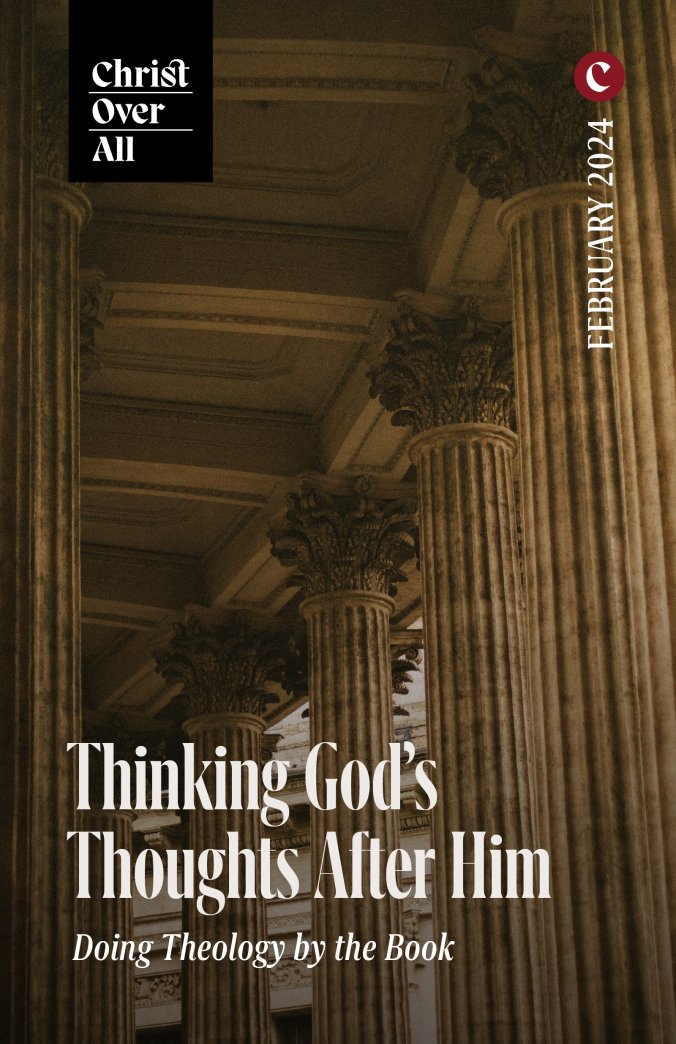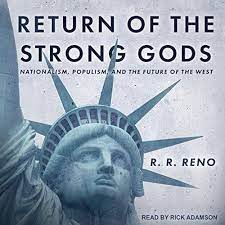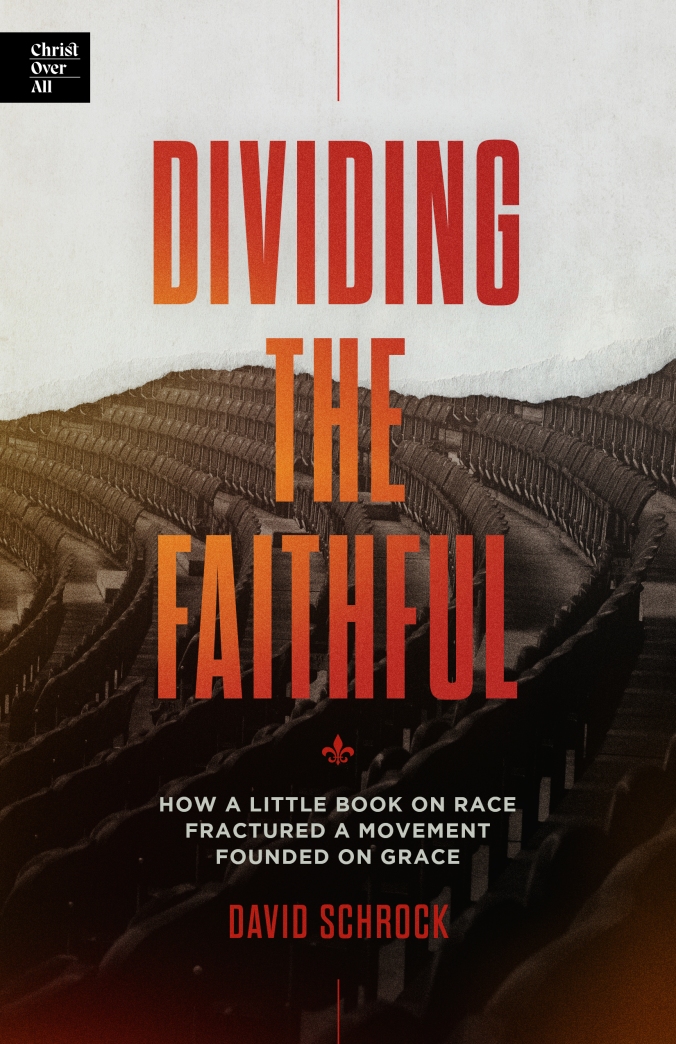 This month our church returns to the Gospel of John, and specifically we have started to look at the Upper Room Discourse (John 13–17), picking up in John 14. For those familiar with John 14–16, as well as the whole book of John, you know how often trinitarian themes, doctrines, and verses emerge. As John recounts the way Jesus speaks of his Father, the promise of sending the Spirit, and the relationship between Father, Son, and Spirit, we have perhaps the richest vein in Scripture for mining trinitarian gold.
This month our church returns to the Gospel of John, and specifically we have started to look at the Upper Room Discourse (John 13–17), picking up in John 14. For those familiar with John 14–16, as well as the whole book of John, you know how often trinitarian themes, doctrines, and verses emerge. As John recounts the way Jesus speaks of his Father, the promise of sending the Spirit, and the relationship between Father, Son, and Spirit, we have perhaps the richest vein in Scripture for mining trinitarian gold.
To help our church, and those reading along here, I am going to begin posting some short pieces on the doctrine of the trinity and the key ideas related our God who is Father, Son, and Holy Spirit. Today, I will begin with a note from Scott Swain, author of many works on the Trinity, including Crossway’s Short Studies in Systematic Theology volume, The Trinity: An Introduction.
In his blogpost, “How John Says Jesus is ‘God’,” he offers four ways to think about Christ’s deity in John, and he concludes with this fourfold textual proof of Jesus’s divinity from John. All told, Swain actually offers seven ways to think of Jesus as God. And what I include here is the four point, with four proofs. Take time to consider each, and then as you read John, keep your eye out for the ways that John presents Jesus as God.
1. Jesus shares the divine name(s).
According to the Fourth Gospel, Jesus shares his Father’s holy “name” (Jn 17:11; cf. 12:41). Throughout the Gospel, Jesus is not only acclaimed as “God” (Jn 1:1; 20:28), he is also identified by God’s proper name YHWH, “the linguistic token of God’s uniqueness par excellence,” along with the “corona of connotation” established by various OT ways of expounding God’s proper name (Kendall Soulen). The monogenēs is called “the one who is” in John 1:18 (echoing Exod 3:14 LXX). Jesus is called “the Lord” in John 1:23 (citing the Tetragrammaton from Isa 40:3) and John 20:28 (echoing Ps 35:23 [34:23 LXX], which calls YHWH “my Elohim and my Adonai”). Perhaps most significantly, Jesus identifies himself as the one true God by means of a series of absolute (Jn 4:26; 6:20; 8:24, 28, 58; 13:19; 18:5, 6, 8) and predicate (Jn 6:35, 41, 48; 8:12; 10:7, 9, 11, 14; 11:25; 14:6; 15:1) “I am” statements, which echo YHWH’s own self-identification in the Old Testament (Deut 32:39; Isa 41:4; 43:10, 13, 25; 46:4; 48:12; 51:12; 52:6).
2. Jesus possesses divine attributes.
He shares God’s eternal and unchangeable being, in contrast to temporal and changeable creatures (Jn 1:1-3; 8:35, 58). He manifests YHWH’s unique “glory” (Jn 12:41, alluding to Isaiah 6), abounding in “grace and truth” (Jn 1:14, which alludes to Exod 34:6). He has “life in himself,” just “as the Father has life in himself” (Jn 5:26). Jesus is a divine king (Jn 18:36) who holds all divine authority in his hands (Jn 3:35; 13:3).
3. Jesus performs divine works.
As the Word who created all things (Jn 1:3-5), Jesus also proclaims the divine name to creatures (Jn 1:14, 18; 17:6, 26). Because he holds all divine authority in his hands, he executes divine judgment, raises the dead, and grants eternal life to whomever he will (Jn 5:21-22, 25, 27; 10:18; 17:2). Jesus predicts the future, revealing that “I am he” (Jn 13:19). Whatever the Father does, the Son does likewise (Jn 5:19), completing the divine work of salvation that the Father gave him to do on the cross (Jn 13:1; 19:3). For all the aforementioned reasons and others,
4. Jesus is worthy of divine honor.
The Father “has given all judgment to the Son, that all might honor the Son, just as they honor the Father” (Jn 5:22-23). Jesus is worthy of the same faith that is due God (Jn 14:1; cf. 3:14-15; 8:24; 20:31), and also the same love (Jn 14:15). As one who shares the divine name, he is “lifted up” and “glorified” as “I am” (Jn 8:28; 12:32, 41). After Jesus’ resurrection, Thomas exclaims, “my Lord and my God” (Jn 20:28), a scriptural expression of covenant devotion (Ps 35:23). Though personally distinct from the Father as his Word and monogenēs, Jesus, according to John, is “one” God with the Father in every way (Jn 10:30).
From these four points and others, we have every reason to see that the Bible is unequivocal in calling Jesus ‘God.’ And thus, we should worship him not only as a good and great man, but as our God—Creator, Redeemer, Lord, and Second Person of the Trinity. Indeed, let us come to the Father, through the Son, by the Spirit, bringing him all the praise he deserves.
Soli Deo Gloria, ds
Photo by Marcos Paulo Prado on Unsplash
 Each month, I write editorial transition for the website Christ Over All. These “Intermissions” highlight the past month and introduce the next. Along the way, I offer a few reflections on Christ and Culture. Here is the most recent Intermission: ‘From Thinking about Israel to Thinking God’s Thoughts after Him.’
Each month, I write editorial transition for the website Christ Over All. These “Intermissions” highlight the past month and introduce the next. Along the way, I offer a few reflections on Christ and Culture. Here is the most recent Intermission: ‘From Thinking about Israel to Thinking God’s Thoughts after Him.’ 

 Adding to this understanding in R. R. Reno’s book
Adding to this understanding in R. R. Reno’s book 
 “It depends on what the meaning of ‘is’ is.” Those infamous words, uttered by Bill Clinton under oath in 1998, should have told us that the world and everything in it was already succumbing to the deconstructive forces of postmodernism. Postmodernism claims that meaning is no longer found in what a human author intends or what the Author of life declares. Rather, meaning is decided by individuals or groups interpreting, or in most cases reinterpreting, the words others.
“It depends on what the meaning of ‘is’ is.” Those infamous words, uttered by Bill Clinton under oath in 1998, should have told us that the world and everything in it was already succumbing to the deconstructive forces of postmodernism. Postmodernism claims that meaning is no longer found in what a human author intends or what the Author of life declares. Rather, meaning is decided by individuals or groups interpreting, or in most cases reinterpreting, the words others. Last year, I joined Nicholas Piotrowski, Charles Ware, and Gus Pritchard for an event in Indianapolis called “
Last year, I joined Nicholas Piotrowski, Charles Ware, and Gus Pritchard for an event in Indianapolis called “ A number of years ago, a church I know purchased something like 100,000 copies of the Gospel of John. Why? So that they could share the message of salvation with everyone in their Chicago suburb. That is to say, by putting a copy of John’s Gospel in everyone’s mailbox, they hoped to share the good news of salvation with all their neighbors.
A number of years ago, a church I know purchased something like 100,000 copies of the Gospel of John. Why? So that they could share the message of salvation with everyone in their Chicago suburb. That is to say, by putting a copy of John’s Gospel in everyone’s mailbox, they hoped to share the good news of salvation with all their neighbors.

 This month our church returns to the Gospel of John, and specifically we have started to look at the Upper Room Discourse (John 13–17), picking up in John 14. For those familiar with John 14–16, as well as the whole book of John, you know how often trinitarian themes, doctrines, and verses emerge. As John recounts the way Jesus speaks of his Father, the promise of sending the Spirit, and the relationship between Father, Son, and Spirit, we have perhaps the richest vein in Scripture for mining trinitarian gold.
This month our church returns to the Gospel of John, and specifically we have started to look at the Upper Room Discourse (John 13–17), picking up in John 14. For those familiar with John 14–16, as well as the whole book of John, you know how often trinitarian themes, doctrines, and verses emerge. As John recounts the way Jesus speaks of his Father, the promise of sending the Spirit, and the relationship between Father, Son, and Spirit, we have perhaps the richest vein in Scripture for mining trinitarian gold.